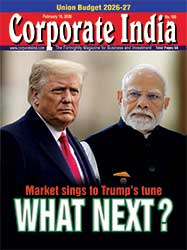Want to Subscribe?
Read Corporate India and add to your Business Intelligence

![]() Unlock Unlimited Access
Unlock Unlimited Access

Published: August 31, 2025
Updated: August 31, 2025
Vedanta Ltd’s high-stakes plan to carve itself into six listed companies is fast losing the narrative it hoped to project. What was pitched as a bold restructuring to unlock shareholder value and sharpen business focus now looks like an exercise in firefighting — one weighed down by regulatory scrutiny, investor skepticism, and a trust deficit built over years.

The National Company Law Tribunal’s decision to adjourn the hearing until Sept 17, after the Ministry of Petroleum and Natural Gas raised objections, underscores the scale of unease. The ministry has warned that the breakup could compromise its ability to recover dues under production and revenue-sharing contracts. Vedanta’s offer of a corporate guarantee suggests regulators aren’t convinced by promises of financial discipline.
As if that weren’t enough, SEBI has issued an administrative warning, noting Vedanta modified its demerger scheme after receiving an initial nod without securing formal consent. The breach, flagged by the Bombay Stock Exchange, was termed a “serious” lapse. While Vedanta insists SEBI’s letter is merely cautionary, the regulator’s intervention strikes at the heart of the company’s governance practices.
This isn’t the first time Vedanta has faced credibility questions. Short-seller Viceroy Research has previously accused the group of concealing liabilities, overstating revenues, and employing opaque financial structures. Although Vedanta has consistently denied these claims, the reports tapped into a longstanding concern among investors: that the company’s complex web of entities serves more to shuffle debt than to generate genuine value.
For billionaire Anil Agarwal, the demerger is also about survival. Vedanta Resources, the London-based parent, is saddled with billions in debt. By breaking up Vedanta into standalone listed firms, Agarwal hopes to make fundraising easier, attract targeted investors, and keep lenders at bay. But the question remains whether the restructuring is designed primarily for creditors rather than long-term shareholders.
The stock market has hardly been enthusiastic. Vedanta shares remain flat since January this year, reflecting growing investor unease. The longer the regulatory process drags, the more uncertainty weighs on the company’s valuation.
In theory, Vedanta’s breakup could create leaner, more focused companies. In practice, the rollout so far has reinforced doubts about transparency, compliance, and governance. Unless Vedanta can bridge that trust gap, the demerger risks being viewed less as value unlocking and more as financial engineering — a strategy to buy time for a debt-laden parent rather than create lasting wealth for minority investors.

February 15, 2026 - First Issue

Industry Review

Want to Subscribe?
Read Corporate India and add to your Business Intelligence

![]() Unlock Unlimited Access
Unlock Unlimited Access
Lighter Vein

Popular Stories
Archives
